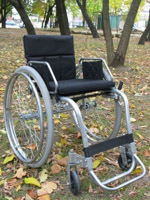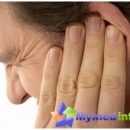The process of obtaining disability takes some time. The decision to recognize a person with disabilities adopts a special commission. She also defines a group of disability. Read more about how everything happens, read in the article.
Content
Who has the right to receive disability
The right to obtain disability has any patient in the presence of medical testimony.
The grounds for recognizing a citizen with disabilities are:
- Violation of health with a resistant disorder of the functions of the body due to diseases, the effects of injuries or anomalies
- Limiting the livelihood (full or partial loss of the face of the ability or ability to carry out self-service, to move independently, orientate, communicate, control your behavior, to study or engage in labor activity);
- The need to exercise social protection measures of a citizen.
The presence of one of these features is not a condition sufficient to recognize the person with disabilities.
Conducting medical and social expertise
 Medical and social expertise is carried out in the institution at the place of residence of the patient or at the place of attachment. The basis for the examination is a written statement of the patient himself or its legal representative. The application is submitted to the head of the institution, it is attached to the direction of health care or social protection authority, medical documents confirming his health violation.
Medical and social expertise is carried out in the institution at the place of residence of the patient or at the place of attachment. The basis for the examination is a written statement of the patient himself or its legal representative. The application is submitted to the head of the institution, it is attached to the direction of health care or social protection authority, medical documents confirming his health violation.
The patient is sent to the medical and social expertise by a health care or social protection authority. The person without a certain place of residence is adopted on the medical and social expertise in the direction of the social protection authority.
In the direction of health establishment, data on the state of health of the citizen, reflecting the degree of violation of the functions of organs and systems, the state of the compensatory capabilities of the body, as well as the results of the rehabilitation activities.
In case the patient cannot appear in the establishment of a state of health, medical and social expertise can be carried out at home, in a hospital where a citizen is in treatment, or in absentia on the basis of submitted documents with its consent or with the consent of his legal representative.
The patient or his legal representative has the right to attract any specialist at the expense of its own funds to participate in the conduct of medical and social expertise with the right of a deliberative voice.
In case of refusal to establish a health care or social protection body in the direction of the medical and social expertise, the person or his legal representative has the right to contact the Medical and Social Expertise Bureau independently, in the presence of medical documents confirming the violation of the functions of the body due to diseases, consequences of injuries and defects, and associated life limit.
The program of an additional survey may include an additional examination in a medical and prophylactic, rehabilitation or other institution, obtaining the conclusion of the Main Bureau of Medical Social Expertise, the request for the necessary information, conducting the inspection of the conditions and nature of professional activities, the social situation of the person and other measures.
Recognition of persons with disabilities is carried out when conducting medical and social expertise, during which the health of the patient's health is made and the degree of restriction of its livelihoods.
Depending on the degree of violation of the functions of the body and limitations of life, the I, II or III of the disability group is established, and the face under the age of 18 is a category «disabled child».
The re-examination of persons with disabilities of the I group is held once every 2 years, persons with disabilities II and III groups - once a year, and disabled children - once in the period for which the child has a category «disabled child».









